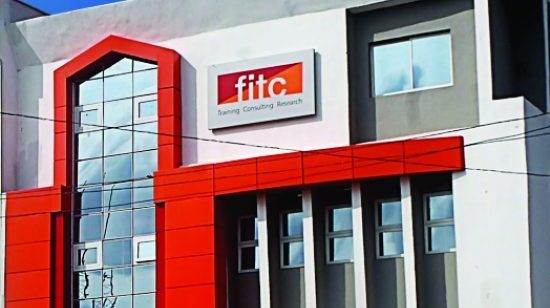The Financial Institutions Training Centre states that Nigerian and African businesses must adopt environmental, Social and governance principles to drive competitiveness and institutional resilience.
According to a statement, the Managing Director/Chief Executive Officer of FITC, Chizor Malize, speaking in Lagos on Friday, ahead of the organisation’s inaugural Sustainability ESG Conference, scheduled to hold on June 26, 2025, in Lagos, said, “At FITC, we understand that ESG is no longer a nice-to-have; it is a business imperative. This conference reinforces our commitment to leading the ESG discourse across Africa and connecting stakeholders to actionable solutions that can transform institutions and society.”
FITC noted that the summit, themed ‘Building a Prosperous Future: Unlocking Growth Opportunities Through Sustainability and ESG Innovation’, will gather stakeholders from regulatory bodies, corporates, multilateral institutions, government, academia and civil society to explore how ESG practices can unlock inclusive growth and strengthen institutional governance.
According to the centre, the event aims to shift the narrative around ESG from compliance to strategy, placing sustainability at the core of business decision-making. It will feature keynote addresses, breakout sessions, solution exhibitions and networking forums.
“ESG is not enough to simply discuss sustainability; companies must actively demonstrate their commitment through concrete actions. This is essential for success in today’s business environment,” said Mrs Oluwasoromidayo George, Corporate Affairs and Sustainability Director at Coca-Cola HBC, during the launch of FITC’s ESG Institute in 2024.
The conference is being organised under the FITC Sustainability & ESG Institute, launched last year to drive thought leadership, research, and capacity building across Africa. The Institute added that it is already offering tools such as ESGPs and executive learning programmes to support institutional ESG integration.
A governance expert, Fabian Ajogwu, had earlier stated, “Governance is vital for boards to incorporate into strategy formulation and appraisal processes. It ensures that the enterprise sustains itself and effectively addresses relevant ESG aspects.”
Organisers noted that participants at the conference will examine case studies on how ESG is being embedded into risk frameworks, investment strategy, regulatory compliance and financial reporting, particularly as frameworks like the International Sustainability Standards Board gain momentum in Africa.
Managing Director of the Energy Training Centre, Ibiene Okeleke, stressed the importance of contextualising ESG to local realities, noting, “ESG should not be seen as a necessary evil but rather as a strategic advantage tailored to an organisation’s unique context.”
Expected speakers include representatives of the Central Bank of Nigeria, ISSB, NGX Regulation Ltd, PwC, Seplat Energy, WEMA Bank, Lagos Business School and the Financial Reporting Council of Nigeria.
Meanwhile, Chairman of Proshare Limited, Femi Awoyemi, called on organisations to “lead with purpose, innovate with conviction, and act with urgency” in the face of rising global ESG expectations and tightening capital flows.
FITC stated that the conference will highlight the link between sustainability and competitiveness, particularly for African economies looking to leverage climate finance, green investment and multilateral partnerships.
The FITC was founded by the Bankers’ Committee, CBN, the Nigeria Deposit Insurance Corporation and all deposit money banks. It has evolved over four decades into a professional services firm supporting finance, education, public sector and enterprise clients.















